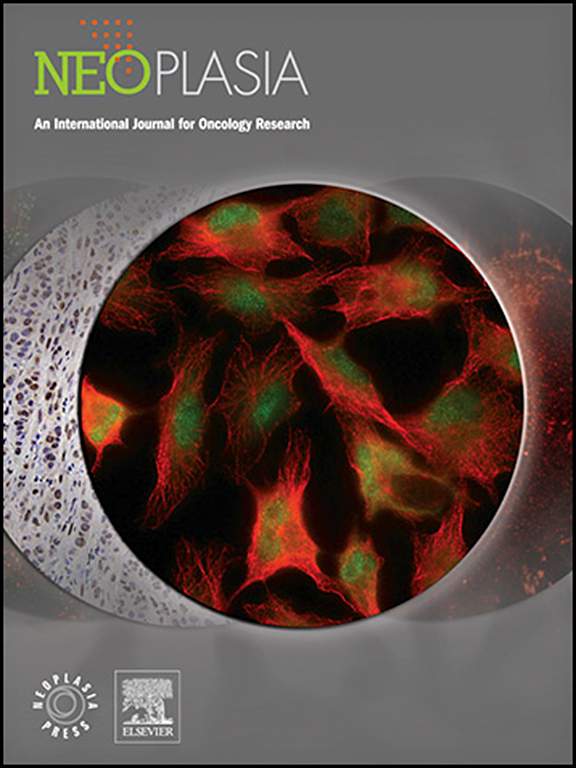RUNX2通过促进谷氨酰胺代谢促进膀胱癌进展。
IF 7.7
2区 医学
Q1 Biochemistry, Genetics and Molecular Biology
引用次数: 0
摘要
膀胱癌是泌尿系统中一种常见的恶性肿瘤。先前的研究表明谷氨酰胺代谢在驱动膀胱癌进展中起着至关重要的作用。然而,控制膀胱癌中谷氨酰胺代谢的精确分子机制仍未充分了解。本研究发现,膀胱癌患者RUNX2和SLC7A6的高水平与临床分期及预后不良有显著相关性。此外,通过过表达或沉默来控制RUNX2的水平对谷氨酰胺和膀胱癌的进展有显著影响。机制上,RUNX2调控SLC7A6的转录,导致谷氨酰胺代谢增强,促进膀胱癌的进展。综上所述,本研究证实了RUNX2作为一个关键转录因子通过调节SLC7A6促进谷氨酰胺和癌症发展的关键功能。靶向RUNX2可能是解决膀胱癌异常谷氨酰胺代谢的一种有希望的治疗方法。本文章由计算机程序翻译,如有差异,请以英文原文为准。
RUNX2 enhances bladder cancer progression by promoting glutamine metabolism
Bladder cancer is a prevalent malignancy within the urinary system. Prior research has suggested that glutamine metabolism plays a crucial role in driving bladder cancer progression. However, the precise molecular mechanism governing glutamine metabolism in bladder cancer is still inadequately understood. The research revealed a significant correlation between high levels of RUNX2 and SLC7A6 and advanced clinical stage, as well as poor prognosis, in bladder cancer patients. Furthermore, manipulating the levels of RUNX2 through overexpression or silencing demonstrated a significant impact on glutamine and bladder cancer progression. Mechanically, RUNX2 regulates the transcription of SLC7A6, resulting in enhanced glutamine metabolism and promoting the progression of bladder cancer. Overall, this research affirms the crucial function of RUNX2 as a key transcription factor to promoting glutamine and cancer development through modulation of SLC7A6. Targeting RUNX2 could represent a promising therapeutic approach for addressing aberrant glutamine metabolism in bladder cancer.
求助全文
通过发布文献求助,成功后即可免费获取论文全文。
去求助
来源期刊

Neoplasia
医学-肿瘤学
CiteScore
9.20
自引率
2.10%
发文量
82
审稿时长
26 days
期刊介绍:
Neoplasia publishes the results of novel investigations in all areas of oncology research. The title Neoplasia was chosen to convey the journal’s breadth, which encompasses the traditional disciplines of cancer research as well as emerging fields and interdisciplinary investigations. Neoplasia is interested in studies describing new molecular and genetic findings relating to the neoplastic phenotype and in laboratory and clinical studies demonstrating creative applications of advances in the basic sciences to risk assessment, prognostic indications, detection, diagnosis, and treatment. In addition to regular Research Reports, Neoplasia also publishes Reviews and Meeting Reports. Neoplasia is committed to ensuring a thorough, fair, and rapid review and publication schedule to further its mission of serving both the scientific and clinical communities by disseminating important data and ideas in cancer research.
 求助内容:
求助内容: 应助结果提醒方式:
应助结果提醒方式:


